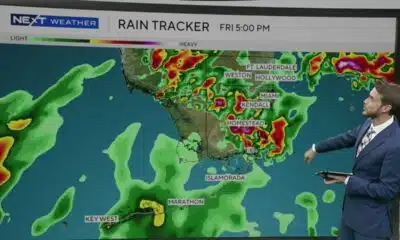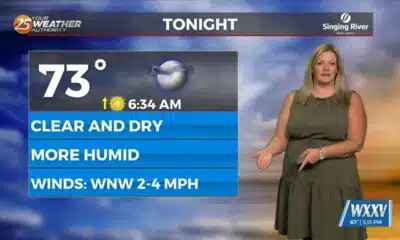News from the South - Louisiana News Feed
Trump voters wanted medical bill relief. For millions, their bills are about to get bigger.
by Noam Levey, KFF Health News, Louisiana Illuminator
July 26, 2025
President Donald Trump rode to reelection last fall on voter concerns about prices. But as his administration pares back federal rules and programs designed to protect patients from the high cost of health care, Trump risks pushing more Americans into debt, further straining family budgets already stressed by medical bills.
Millions of people are expected to lose health insurance in the coming years as a result of the tax cut legislation Trump signed this month, leaving them with fewer protections from large bills if they get sick or suffer an accident.
At the same time, significant increases in health plan premiums on state insurance marketplaces next year will likely push more Americans to either drop coverage or switch to higher-deductible plans that will require them to pay more out-of-pocket before their insurance kicks in.
Smaller changes to federal rules are poised to bump up patients’ bills, as well. New federal guidelines for covid-19 vaccines, for example, will allow health insurers to stop covering the shots for millions, so if patients want the protection, some may have to pay out-of-pocket.
The new tax cut legislation will also raise the cost of certain doctor visits, requiring copays of up to $35 for some Medicaid enrollees.
And for those who do end up in debt, there will be fewer protections. This month, the Trump administration secured permission from a federal court to roll back regulations that would have removed medical debt from consumer credit reports.
That puts Americans who cannot pay their medical bills at risk of lower credit scores, hindering their ability to get a loan or forcing them to pay higher interest rates.
“For tens of millions of Americans, balancing the budget is like walking a tightrope,” said Chi Chi Wu, a staff attorney at the National Consumer Law Center. “The Trump administration is just throwing them off.”
GET THE MORNING HEADLINES.
White House spokesperson Kush Desai did not respond to questions about how the administration’s health care policies will affect Americans’ medical bills.
The president and his Republican congressional allies have brushed off the health care cuts, including hundreds of billions of dollars in Medicaid retrenchment in the mammoth tax law. “You won’t even notice it,” Trump said at the White House after the bill signing July 4. “Just waste, fraud, and abuse.”
But consumer and patient advocates around the country warn that the erosion of federal health care protections since Trump took office in January threatens to significantly undermine Americans’ financial security.
“These changes will hit our communities hard,” said Arika Sánchez, who oversees health care policy at the nonprofit New Mexico Center on Law and Poverty.
Sánchez predicted many more people the center works with will end up with medical debt. “When families get stuck with medical debt, it hurts their credit scores, makes it harder to get a car, a home, or even a job,” she said. “Medical debt wrecks people’s lives.”
Medicaid changes: Q&A with Jeff Reynolds, Rural Hospital Coalition of Louisiana
For Americans with serious illnesses such as cancer, weakened federal protections from medical debt pose yet one more risk, said Elizabeth Darnall, senior director of federal advocacy at the American Cancer Society’s Cancer Action Network. “People will not seek out the treatment they need,” she said.
Trump promised a rosier future while campaigning last year, pledging to “make America affordable again” and “expand access to new Affordable Healthcare.”
Polls suggest voters were looking for relief.
About 6 in 10 adults — Democrats and Republicans — say they are worried about being able to afford health care, according to one recent survey, outpacing concerns about the cost of food or housing. And medical debt remains a widespread problem: As many as 100 million adults in the U.S. are burdened by some kind of health care debt.
Despite this, key tools that have helped prevent even more Americans from sinking into debt are now on the chopping block.
Medicaid and other government health insurance programs, in particular, have proved to be a powerful economic backstop for low-income patients and their families, said Kyle Caswell, an economist at the Urban Institute, a think tank in Washington, D.C.
Caswell and other researchers found, for example, that Medicaid expansion made possible by the 2010 Affordable Care Act led to measurable declines in medical debt and improvements in consumers’ credit scores in states that implemented the expansion.
“We’ve seen that these programs have a meaningful impact on people’s financial well-being,” Caswell said.
Trump’s tax law — which will slash more than $1 trillion in federal health spending over the next decade, mostly through Medicaid cuts — is expected to leave 10 million more people without health coverage by 2034, according to the latest estimates from the nonpartisan Congressional Budget Office. The tax cuts, which primarily benefit wealthy Americans, will add $3.4 trillion to U.S. deficits over a decade, the office calculated.
The number of uninsured could spike further if Trump and his congressional allies don’t renew additional federal subsidies for low- and moderate-income Americans who buy health coverage on state insurance marketplaces.
This aid — enacted under former President Joe Biden — lowers insurance premiums and reduces medical bills enrollees face when they go to the doctor or the hospital. But unless congressional Republicans act, those subsidies will expire later this year, leaving many with bigger bills.
Federal debt regulations developed by the Consumer Financial Protection Bureau under the Biden administration would have protected these people and others if they couldn’t pay their medical bills.
The agency issued rules in January that would have removed medical debts from consumer credit reports. That would have helped an estimated 15 million people.
But the Trump administration chose not to defend the new regulations when they were challenged in court by debt collectors and the credit bureaus, who argued the federal agency had exceeded its authority in issuing the rules. A federal judge in Texas appointed by Trump ruled that the regulation should be scrapped.
YOU MAKE OUR WORK POSSIBLE.
This article first appeared on KFF Health News and is republished here under a Creative Commons license. KFF Health News is a national newsroom that produces in-depth journalism about health issues and is one of the core operating programs at KFF—an independent source of health policy research, polling, and journalism. Learn more about KFF, and subscribe to KFF Health News’ free Morning Briefing.
Louisiana Illuminator is part of States Newsroom, a nonprofit news network supported by grants and a coalition of donors as a 501c(3) public charity. Louisiana Illuminator maintains editorial independence. Contact Editor Greg LaRose for questions: info@lailluminator.com.
The post Trump voters wanted medical bill relief. For millions, their bills are about to get bigger. appeared first on lailluminator.com
Note: The following A.I. based commentary is not part of the original article, reproduced above, but is offered in the hopes that it will promote greater media literacy and critical thinking, by making any potential bias more visible to the reader –Staff Editor.
Political Bias Rating: Center-Left
This content emphasizes the negative impacts of policies implemented by a Republican administration, particularly under former President Donald Trump, on healthcare affordability and patient protections. It highlights concerns commonly raised by progressive and center-left perspectives, such as cuts to Medicaid, increased medical debt, and reductions in federal healthcare protections. The article relies on critiques from consumer advocates and references policies enacted under Democratic leadership as protective measures. While it is critical of Republican policies, the tone remains factual and presents data and expert opinions without overt partisan rhetoric, placing it in a center-left position on the political bias spectrum.
News from the South - Louisiana News Feed
OPPJ Comprehensive Plan
SUMMARY: The Ouachita Parish Police Jury is conducting a series of community meetings to gather public input for their comprehensive plan guiding future growth. Police Jury members, including Larry Bratton from District D, emphasize the importance of reflecting residents’ voices in the master plan. Community members participated in interactive stations, allocating resources to priorities like infrastructure and downtown development, to help shape goals for the next 2, 5, and 20 years. Landscape architect Matt Pizatella and partners from Atlas support the effort. Bratton stresses that without proactive planning, the parish risks costly and less beneficial outcomes in the long term.
OPPJ Comprehensive Plan
News from the South - Louisiana News Feed
Mayor Cantrell pleads not guilty to federal corruption charges; judge imposes travel restrictions
SUMMARY: Mayor Latoya Cantrell pleaded not guilty to 11 federal charges including conspiracy, fraud, obstruction, and making false statements. The indictment links an alleged affair with her police bodyguard, Officer Vappy, to misuse of city funds and efforts to conceal deleted encrypted WhatsApp messages. Although no personal financial benefit is claimed, the charges accuse Cantrell of arranging unnecessary protective details for Vappy, costing taxpayers $70,000. Released without bond, Cantrell must surrender her passport, requires approval for travel outside Louisiana, and is barred from discussing the case with city employees or Vappy. Despite restrictions, court rules her ability to manage city operations remains unaffected.
Cantrell was indicted by a grand jury Aug. 15 as additional charges tacked onto Vappie’s indictment from 2024.
News from the South - Louisiana News Feed
Drowned child recovers thanks to oxygen chamber, but insurance did not approve
SUMMARY: In 2018, Will Boyton’s 3-year-old son, Robert, drowned and was without oxygen for nearly an hour. Despite hospitals urging them to give up hope, Will insisted on hyperbaric oxygen chamber treatment, inspired by its success in brain injury cases. Robert began treatments at Harch Hyperbarics, showing rapid improvement: from unresponsive and bent backward to recognizing family and laughing within days. Over years, combined with stem cell therapy, Robert vastly surpassed his initial brain-dead prognosis. Though studies and treatments show promise in severe brain injuries, insurance refuses to reimburse these costly treatments, as the FDA hasn’t approved them.
For years, Medical Watch has covered adults and children with brain injuries, coming to New Orleans from around the world, for a treatment considered controversial.
-
News from the South - Louisiana News Feed7 days ago
Portion of Gentilly Ridge Apartments residents return home, others remain displaced
-
News from the South - North Carolina News Feed7 days ago
Hanig will vie for 1st Congressional District seat of Davis | North Carolina
-
News from the South - Alabama News Feed7 days ago
Alabama state employee insurance board to seek more funding, benefit changes
-
News from the South - West Virginia News Feed7 days ago
WV Supreme Court will hear BOE’s appeal in vaccine lawsuit — but not right away
-
News from the South - Georgia News Feed7 days ago
More details expected on ICE raid at south Georgia plant | Georgia
-
Local News Video7 days ago
9/4 – Sam Lucey's “A Little More Humid” Thursday Night Forecast
-
News from the South - Missouri News Feed7 days ago
ICE arrests fell in August despite show of force in DC, Los Angeles
-
News from the South - Tennessee News Feed7 days ago
Stockard on the Stump: To deploy or not to deploy, that is the question












































